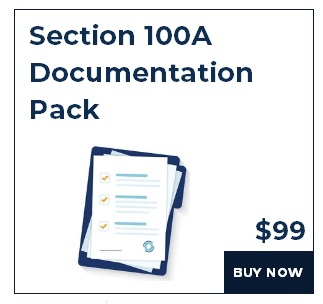
Upcoming events
Don’t get caught out on June 30: What you need to know about Trust Distributions and Division 7A (Webinar)
On Tuesday June 15 at 11am AWST, Birchstone Tax Law will be hosting a free webinar on trust distributions and Division 7A. To find out more details and register, click here. If you can’t make it, register and we’ll send you a copy of the recording.
Where should the money go? Understanding New ATO PCG 2021/D2 (Webinar)
Thank you to those who attended our webinar on the new ATO PCG 2021/D2 last week. If you missed out or would like to re-watch, click here to view the recording.
Dan’s Deliberations
One of the issues to come out of our webinar last week on the ATO’s new draft Practical Compliance Guideline PCG 2021/D2 on the allocation of professional firm profits (PCG), was whether the PCG is relevant to professionals (e.g. medical professionals) which ‘contract’ through an entity (company, partnership or trust).
The first threshold that needs to be met before the PCG can apply is the personal services income (PSI) rules. If the PSI rules apply, all the income of the entity will be attributed automatically to the professional under the rules. If the PSI rules do not apply, the entity is a personal services business (PSB), and there is no automatic attribution under the rules. However, that’s not the end of the story.
The ATO considers the general anti-avoidance rule in Part IVA can still apply, even though the PSI rules do not. Old ATO ‘IT’ rulings (including IT 2503) lay out the ATO’s view that Part IVA can apply where the entity’s income is directly or predominantly from the rendering of personal services by the principal practitioner(s). The ATO has a rule of thumb in IT 2639 that where the entity has at least as many non-principal practitioners as principal practitioners, the income is considered to be derived from the business structure (and therefore does not fall within the scope of IT 2503).
Where IT 2503 applies, the ATO expects to see the entity’s income, after expenses, to flow out to the principal(s). If this does not happen, either because income is retained within the entity or split with a related party, the ATO would look to apply Part IVA.
The question has now arisen, to what extent does the PCG change the ATO’s view? We’ve heard some views that the PCG relaxes the requirements under the old IT rulings, and that as long as you fall within the PCG your arrangement will be acceptable to the ATO. My view is that the PCG is only intended to apply where the income from the entity is primarily from the business structure (as described in IT 2503). Paragraph 23 of the PCG states “[t]his Guideline does not replace, alter or affect the ATO view as expressed in public rulings and other publications. A list of related public rulings is contained in the References section of this Guideline.” That list includes IT 2503 and 2639. Paragraphs 9 and 13 also state the ATO’s intention to apply Part IVA where income flowing from personal exertion (as opposed to income generated by a business structure) is attempted to be alienated.
If you have any views on this issue, or would like to share your experiences, please get in touch – we’d love to hear from you.
ATO Update
ATO update: Cryptocurrency under the microscope
The ATO has announced that they will be writing to around 100,000 taxpayers with cryptocurrency assets explaining their tax obligations and urging them to review their previously lodged returns. The ATO expects that almost 300,000 taxpayers will be prompted to report their cryptocurrency gains or losses in their 2021 tax return.
Updated ATO guidance: COVID-19 permanent establishments
The ATO has updated their guidance on whether the presence of employees in Australia due to the impacts of COVID-19 may create a permanent establishment. The guidance states that the ATO will not apply compliance resources to determine whether you have a permanent establishment in Australia if:
- you did not otherwise have a permanent establishment in Australia before the effects of COVID-19;
- the temporary presence of employees in Australia continues to solely be as a result of COVID-19 related travel restrictions;
- those employees temporarily in Australia will relocate overseas as soon as practicable following the relaxation of international travel restrictions; and
- you have not recognised those employees as creating a permanent establishment or generating Australian source income for the purpose of the tax laws of another jurisdiction.
Draft GST determination: Supply of a burial right
The ATO has released Draft Goods and Services Tax Determination GSTD 2021/D2 which considers the GST consequences where an Australia government agency supplies a burial right in respect of a public cemetery.
Updated ATO guidance: Remission of penalties for SGEs
The ATO has announced that they will automatically remit failure to lodge on time penalties to nil for the period until 30 August for significant global entities (SGEs):
- with a 31 December 2020 substituted accounting period;
- with an income tax return lodgment due on 15 July 2021;
- a lodgment concession is available to 31 July 2021 for returns lodged electronically by a tax agent; and
- who lodge their 2021 income tax return and, or corresponding GPFS less than 30 days late.
Class rulings
The ATO has issued the following rulings:
- CR 2021/37 – Western Australian Debating League Incorporated – Payments to League Members; and
- CR 2021/38 – Saracen Mineral Holdings Limited – Scheme of arrangement and special dividend.
Cases
Appeal
The High Court of Australia has refused to grant the Commissioner special leave to appeal from the decision in FCT v Glencore Investment Pty Ltd [2020] FCAFC 187 (covered in the Birchstone Brief for the week ended 13 November). In that case, the Full Federal Court largely found in favour of Glencore in relation to the transfer pricing arrangements with its Swiss-based trader parent.
Legislation
Payroll Tax Amendment (Jobs Plus) Bill 2021 (NSW) – Bill receives assent
The Bill which amends the Payroll Tax Act 2007 (NSW) to exempt employers from liability to pay payroll tax on wages that are the subject of Jobs Plus agreements has received assent and is now law.
Australian Screen Production Incentive: Exposure draft materials
Exposure draft materials have been released for the Australian Screen Production Incentive announced in the 2021-22 Federal Budget. Alongside other changes, the legislation proposes to:
- increase the offset for non-feature films from 20% to 30%; and
- increase the threshold for feature length content from $500,000 to $1 million.
Treasury Laws Amendment (2021 Measures No. 4) Bill 2021 (Cth) – Bill introduced
The Bill which makes various changes to Australian tax legislation has been introduced into Parliament. Amongst other things, the Bill:
- amends the Fringe Benefits Tax Assessment Act 1986 (Cth) to include an FBT exemption for employers who provide training to redundant or soon-to-be redundant employees to allow them to gain new employment;
- extends the juniors minerals exploration incentive for another four years; and
- exempts certain granny flat arrangements from capital gains tax.

